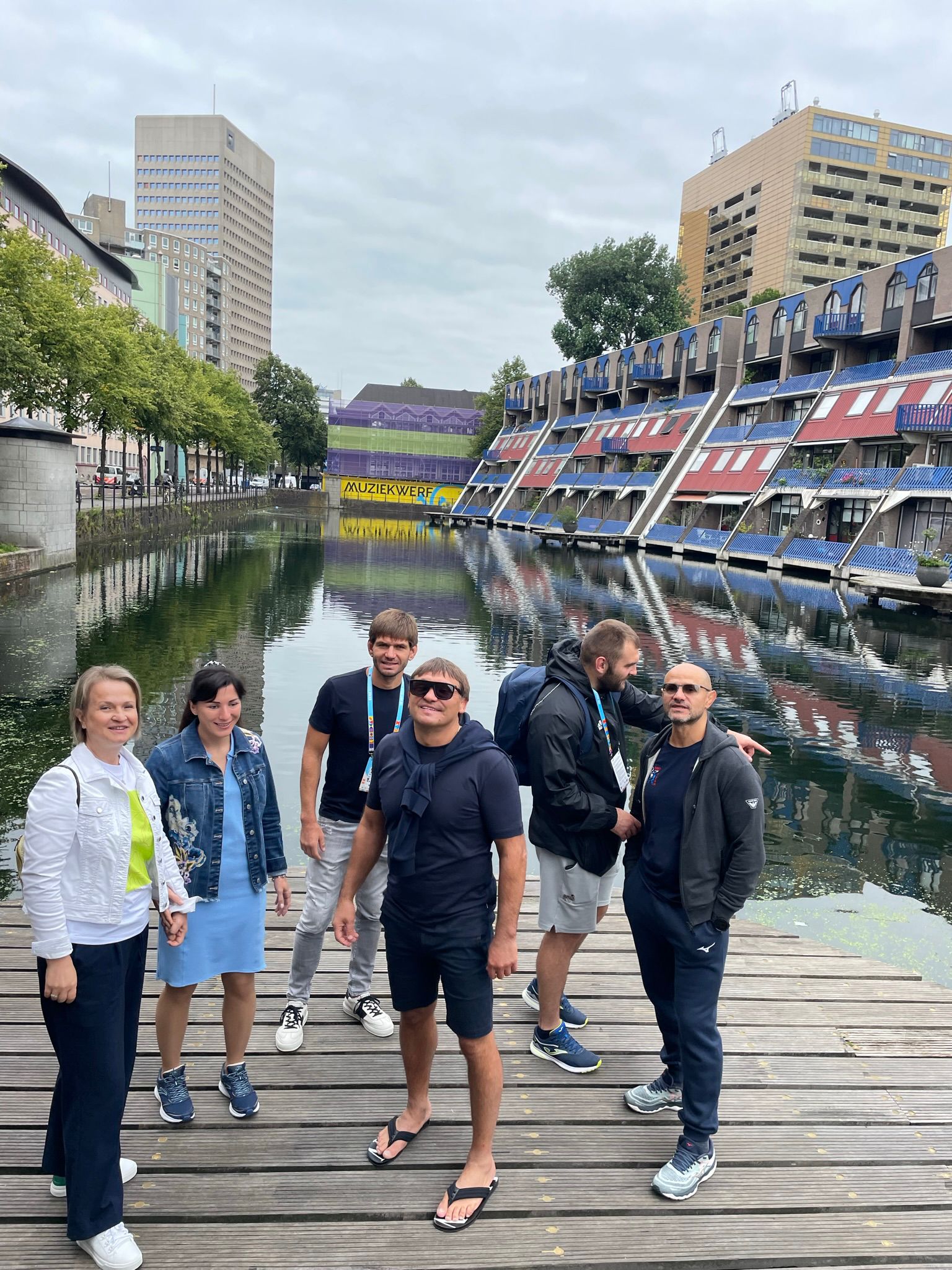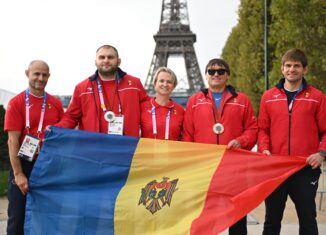
What is the relationship between Moldovan wine and Paralympic judo? At first sight, not so much. But in Moldova – one of the smallest countries in Europe, best known for its wine – these two worlds have come together in a surprising way. Behind this unique connection is Irina Staheeva, a woman whose energy and compassion helps the Moldovan para judocas pursue their dreams and win medals.
Interviewed by Natalia Donets
From wine to para judo
Irina Staheeva is courageous, charismatic and passionate. In the world of Moldovan wine, Iryna is known to many – she is a co-founder of the Moldovan sommelier guild and director of the sommelier school, as well as a former development manager of the Gitana Winery 1953. Her journey into the world of Paralympic sports began four years ago quite unexpectedly.
‘Vitalie Gligor – head coach of Moldova’s national para judo team and senior vice president of the Paralympic Committee – signed up for one of my introductory courses, – recalls Irina. – We got on right away. I told him that I did judo when I was a kid. He said, “Me too.” My training took place at the Manege (editor’s note: Indoor arena in Chisinau). His too. Then we realized that we even had the same coach, only in different age groups’.
Vitalie and the Moldovan para judokas always brought Moldovan wine to competitions and training camps, offering it as a token of friendship and respect to coaches and officials from other countries. This tradition was inspired by his own judo coach, the late Vasile Colța — one of the legends of Moldovan judo.
But for Vitalie, simply gifting a good bottle of wine wasn’t enough. He wanted to tell its story — to speak about its taste, aroma, and the rich traditions of Moldovan winemaking. That passion led him to enroll in sommelier courses, marking the beginning of a new chapter in the history of Moldovan para judo.
The call that changed everything
A few months after completing the course, Vitalie Gligor called Irina with an unusual request: one of the blind judokas needed a guide for the upcoming Grand Prix in Baku, Azerbaijan. The athlete in question was Ina Cernei.
‘I told him there was nothing I could do,’ she admits. ‘I hadn’t been involved in sports for a long time, and I had no idea what it meant to be a guide for a visually impaired person. Besides, my work schedule was packed — how could I possibly combine all my projects with para judo?’
But Vitalie didn’t give up. ‘He kept calling. In the end, I agreed.’
Meeting the team
Irina met the national team for the first time right at the airport. Until that moment, she had never had close contact with people living with disabilities. Her first trip with the team — to the Para Judo Grand Prix in Baku — became a turning point.
Among those traveling to the tournament in Baku were Oleg Crețul, Ion Basoc, and Ina Cernei.
‘We immediately clicked and found common ground from the very first minute,’ she says. ‘Our introduction was warm and effortless. Helping Ina didn’t require any special effort. She would say, “Walk ahead — I’ll hold your elbow and follow your movement,” and she did just that. You don’t need to do everything for a visually impaired person. They are incredibly independent — far more than you might imagine.’
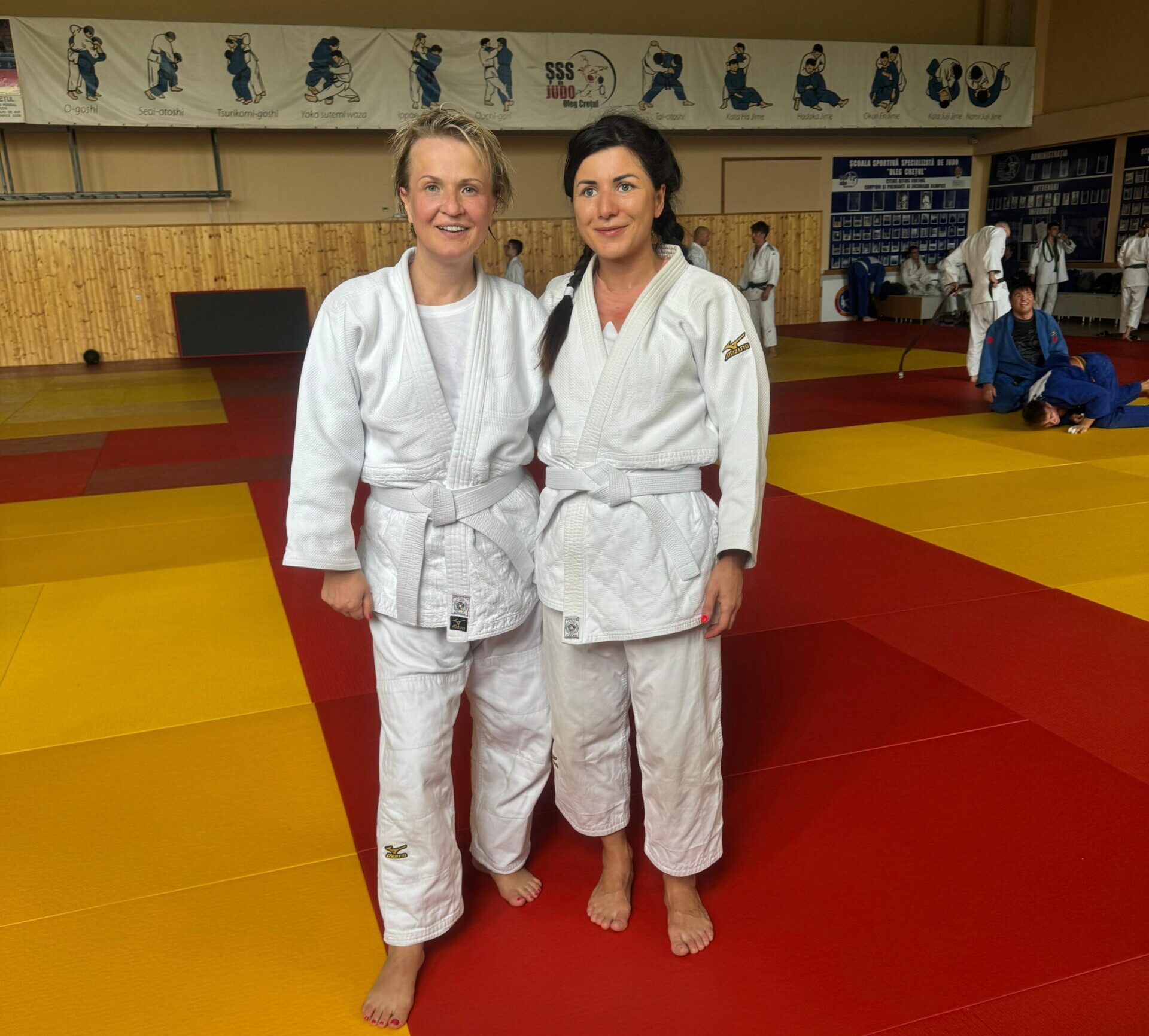
Soon, she realized that being a guide was much more than simply showing the way.
‘A guide is not just a companion. A guide is a friend, a psychologist, an assistant, and even a bit of a fan. The job is to open the world to the athlete, to fill it with energy and to bring a sea of positive emotions.
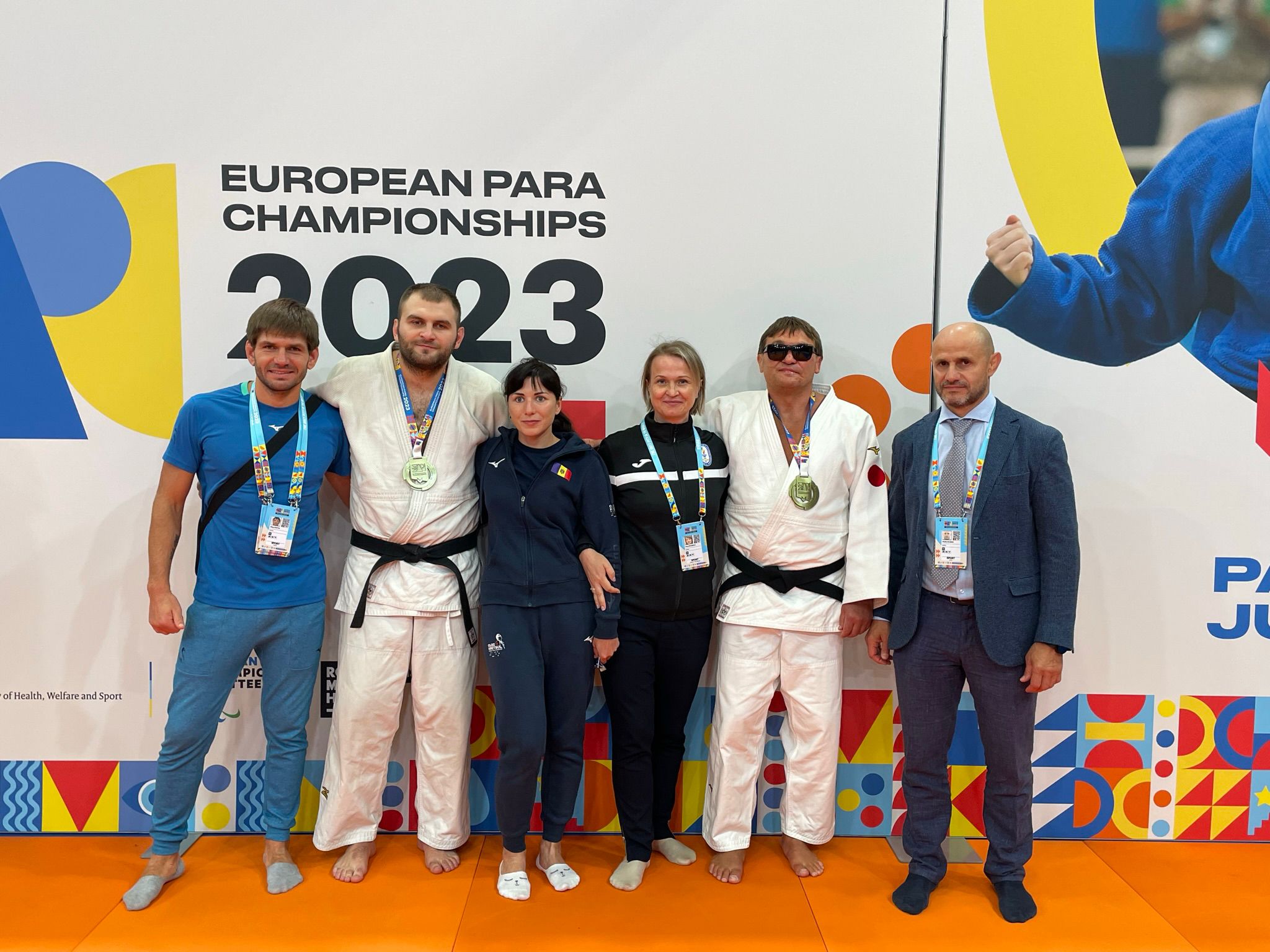
A guide doesn’t just explain what the adversaries are doing and the techniques they are using on the mat— the guides describes the landscapes, the people, the colors, the architecture, and the atmosphere of the streets and countries where competitions take place. Such a person becomes the athlete’s eyes, their spiritual support.
You inspire, support, sometimes literally embrace, wipe away tears, and help them see the world in a new way — through your eyes.
The key is to find the right approach to each athlete. Once you become a guide, you no longer belong to yourself. You belong to the athlete. You can’t just wander around the city alone, go sightseeing, or shop — for the duration of training camps and competitions, you are one.
With Ina, we found common ground from the very first days, but with other athletes it can be much more challenging. Everyone has their own personality and psychological traits. But if you choose to be a guide, you have to find a way to reach the person. During training camps or competitions, you are together twenty-four hours a day. Sometimes it’s just a few days, and sometimes weeks spent side by side.
That’s why Vitalie wanted me to be her guide — I don’t accept negativity and don’t let the people around me lose heart. Whenever Ina felt down, I was always there to help her get back on her feet.’
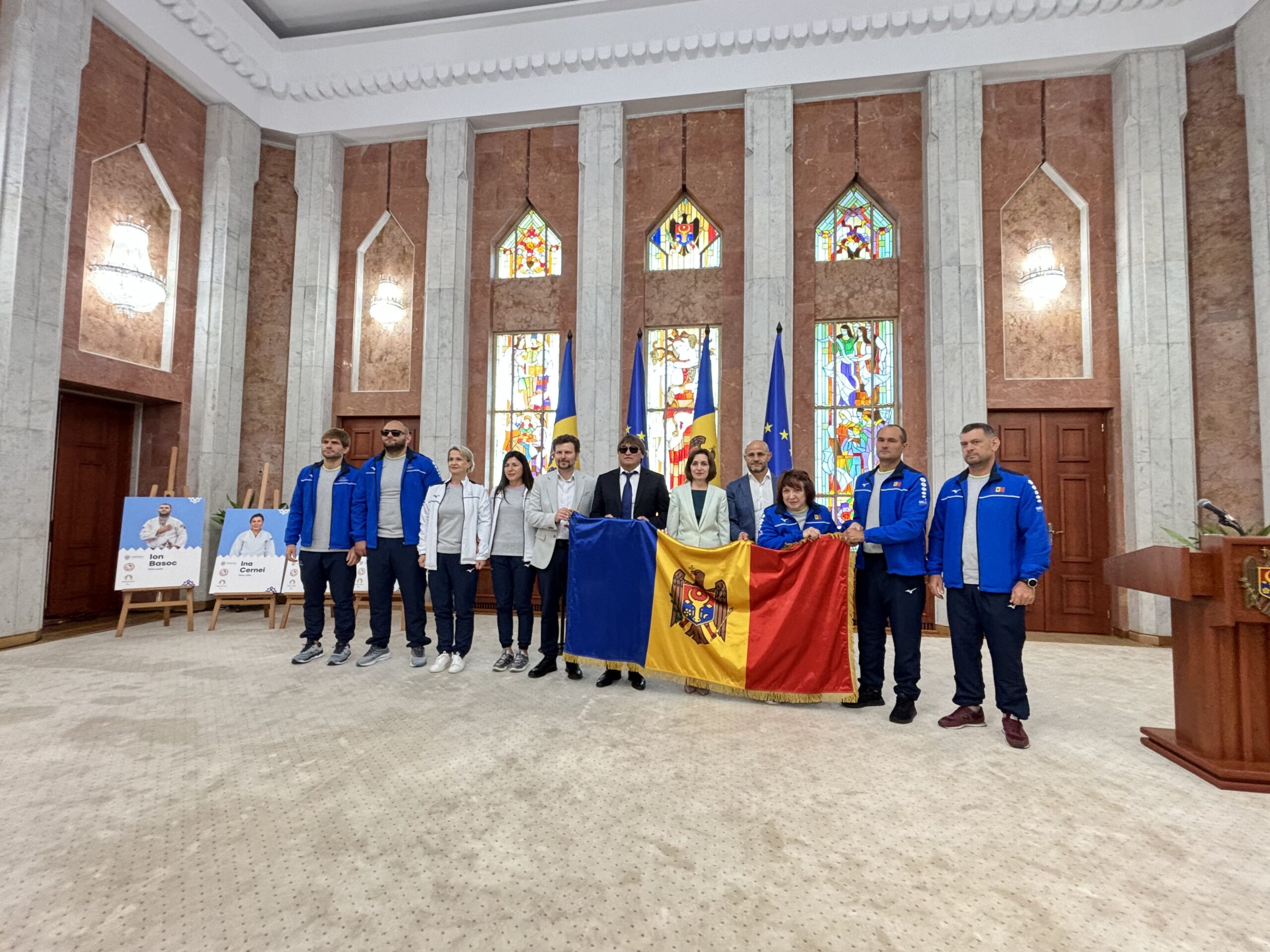
An eye-opening experience
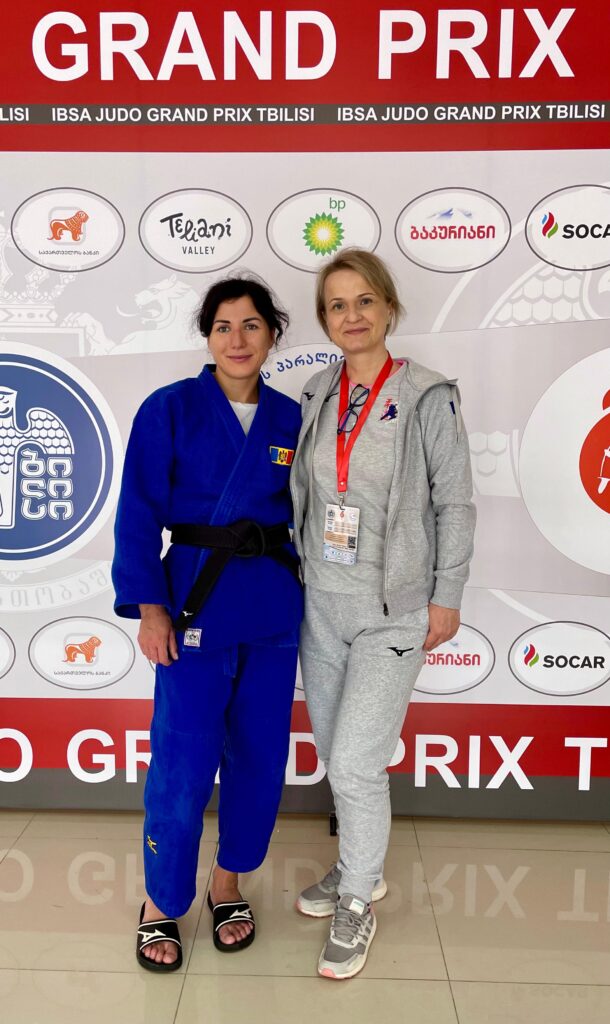 ‘While we were already in Baku, I wanted to visit the famous Heydar Aliyev Center, and Ina volunteered to come with me. I couldn’t imagine how she could enjoy a museum visit without being able to see anything,’ says Irina. ‘But I was completely wrong.
‘While we were already in Baku, I wanted to visit the famous Heydar Aliyev Center, and Ina volunteered to come with me. I couldn’t imagine how she could enjoy a museum visit without being able to see anything,’ says Irina. ‘But I was completely wrong.
We went to this amazing museum, where I described everything I saw. She felt the acoustics of the building, touched everything she could (sometimes even what she wasn’t supposed to — secretly, so the staff wouldn’t notice). I told her about the legendary architect Zaha Hadid, who designed the building, and about Heydar Aliyev himself, in whose honor the center was created. The museum is simply stunning; the building resembles a white wave. It tells the story of Aliyev’s life, with childhood photos, his cars, and gifts he received from presidents of various countries during his time as Azerbaijan’s president. When we returned to the hotel, Ina enthusiastically told all the other team members what she had ‘seen’ there.’
One competition followed another, and soon Irina found herself taking on multiple roles: volunteer-guide, director and instructor at the sommelier school, and development manager at Gitana Winery 1953. Every time the para judo team needed support at a competition, she had to sacrifice work and take time off. Fortunately, the owners of Gitana Winery 1953, the Dulger family, provided incredible support. ‘They gave me the freedom to contribute to an important cause,’ Irina says.
The anniversary celebration that united everyone
The event that marked Irina’s transition from volunteer to leadership role was the celebration of the 20th anniversary of the Moldovan Paralympic Committee. Until then, no one had ever taken the effort to organize something truly special for athletes with disabilities. Oleg Crețul was not only an active athlete but also the president of the Moldovan Paralympic Committee, while VitalieGligor was not only the president of the Para Judo Federation and head coach of the national team, but also the committee’s first vice president.
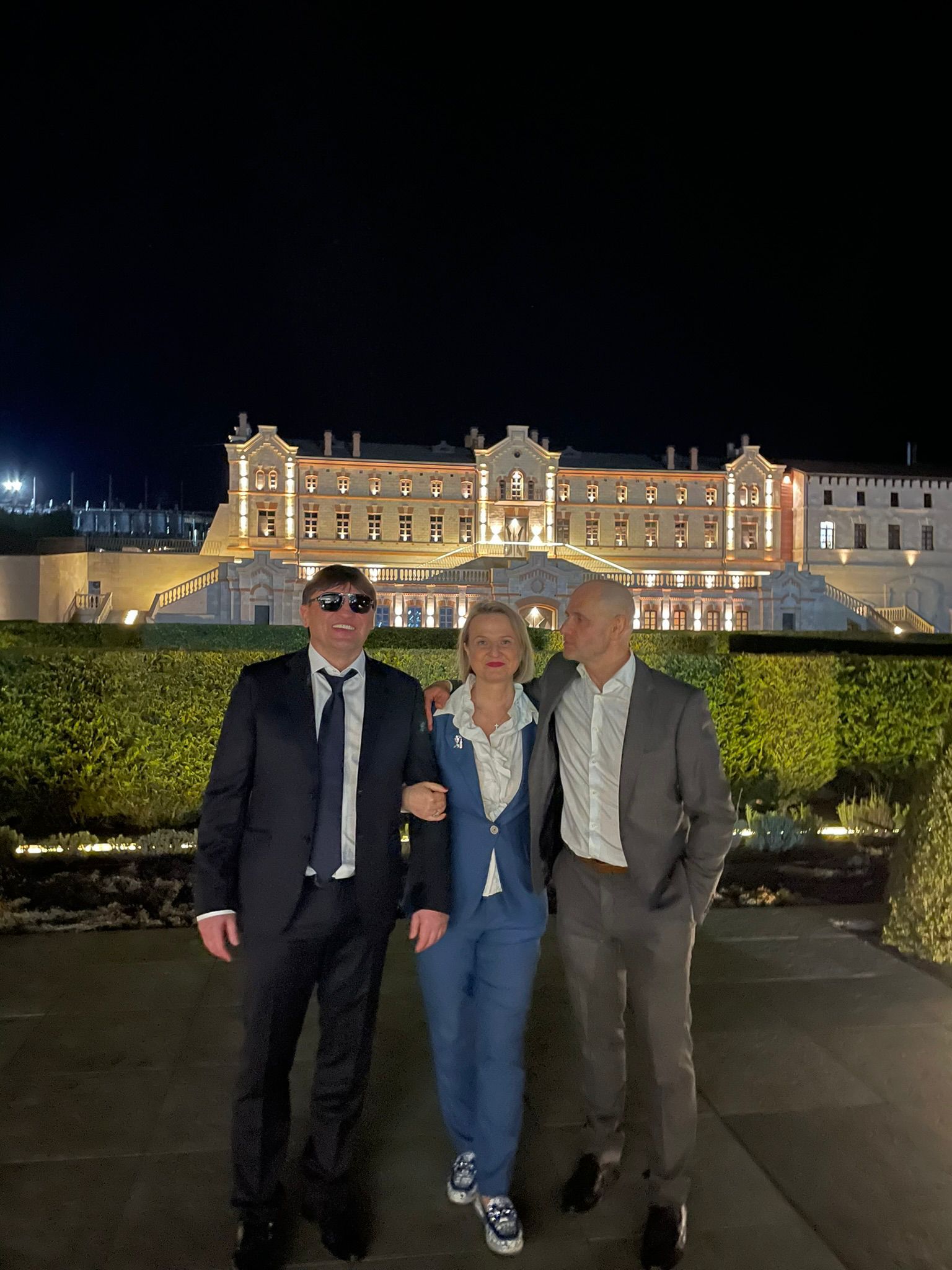
It was they who turned to Irina, asking her to help organize a truly exceptional event. The task proved challenging: there were very few venues fully accessible to wheelchair users in Chisinau, the capital of Moldova. Winemakers came to the rescue. Irina contacted Adrian Trofim, owner of Castel Mimi winery that is based at an actual castle, located in the picturesque suburbs of the Moldovan capital and asked for his support in hosting the anniversary celebration — and, of course, he agreed.
‘Of course, when it came to the budget, I said we simply didn’t have one. We found the venue and started reaching out to all our friends and contacts. Many decided to help, and thanks to their support, we were able to organize a truly unforgettable event. And it wasn’t just financial assistance — for example, Viorica Cosmetics and several pharmaceutical companies provided gifts for our athletes, and Dulcinella supplied an enormous cake,’ Irina recalls.
‘So many years have passed, and I still can’t believe we managed to pull it off. Imagine it: for the first time in their lives, wheelchair-bound athletes and other Paralympians visited a luxurious castle with wine cellars and a rich history. A guide led them on a tour, and they were treated to a grand banquet, awards, and gifts. There were tears in their eyes.’
After the anniversary, Oleg Crețul and Vitalie Gligor officially invited Irina to join the Paralympic Committee as vice president. ‘I wasn’t sure whether I could take on an even bigger responsibility,’ she recalls. ‘But they convinced me that the new role was just a title — one that would give me more opportunities. It’s one thing to attend a meeting with a partner without any official status, and quite another when you introduce yourself as vice president.’
In the end, Irina agreed — and this step opened up entirely new horizons for her.
Wine played a role in helping Moldovan Paralympians get to Paris
‘Gitana Winery 1953 has always supported the team, providing us with exclusive wines for events and trips, and even creating a special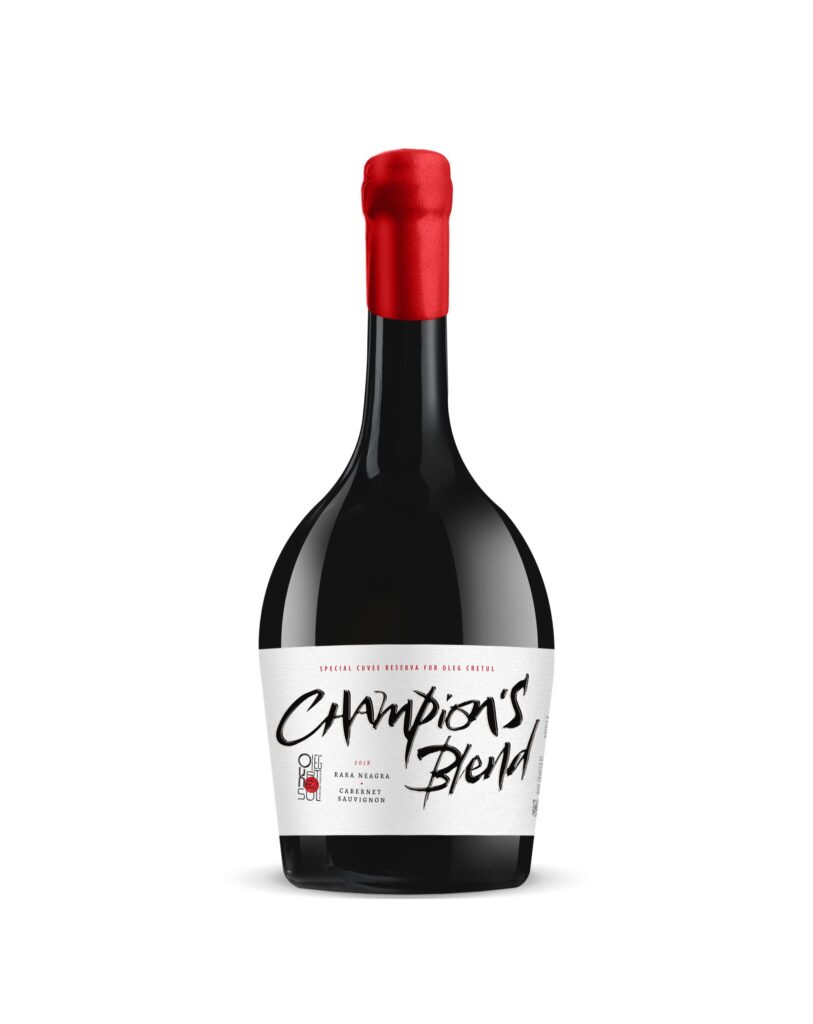 collectible wine. The proceeds from the sale went to support our Paralympians ahead of the Paris Paralympics,‘ says Irina.
collectible wine. The proceeds from the sale went to support our Paralympians ahead of the Paris Paralympics,‘ says Irina.
The special blended wine, made by combining the Moldovan grape variety Rara Neagră with French Cabernet Sauvignon, was named “Champion’s Blend” in honor of the outstanding champion Oleg Crețul. The wine was aged in French oak barrels, and the bottles were custom-made in Italy. The label was written in calligraphic style using Japanese ink. Mini kimonos, crafted from Oleg Crețul’s old kimonos, were used to “dress” the bottles. The edition was limited to only 300 bottles.
‘We set the price at 500 euros to direct the proceeds to the Oleg Kretsul International Foundation, which supports Moldovan Paralympians. Several bottles are still available for sale, giving others a chance to support the foundation.
Some bottles were given as gifts to people who played an important role in supporting Moldova’s Paralympic movement. One was presented to President Maia Sandu, and another to IJF President Marius Vizer, a long-time friend of Oleg Crețul and Vitalie Gligor, who has actively supported the Foundation for many years.‘
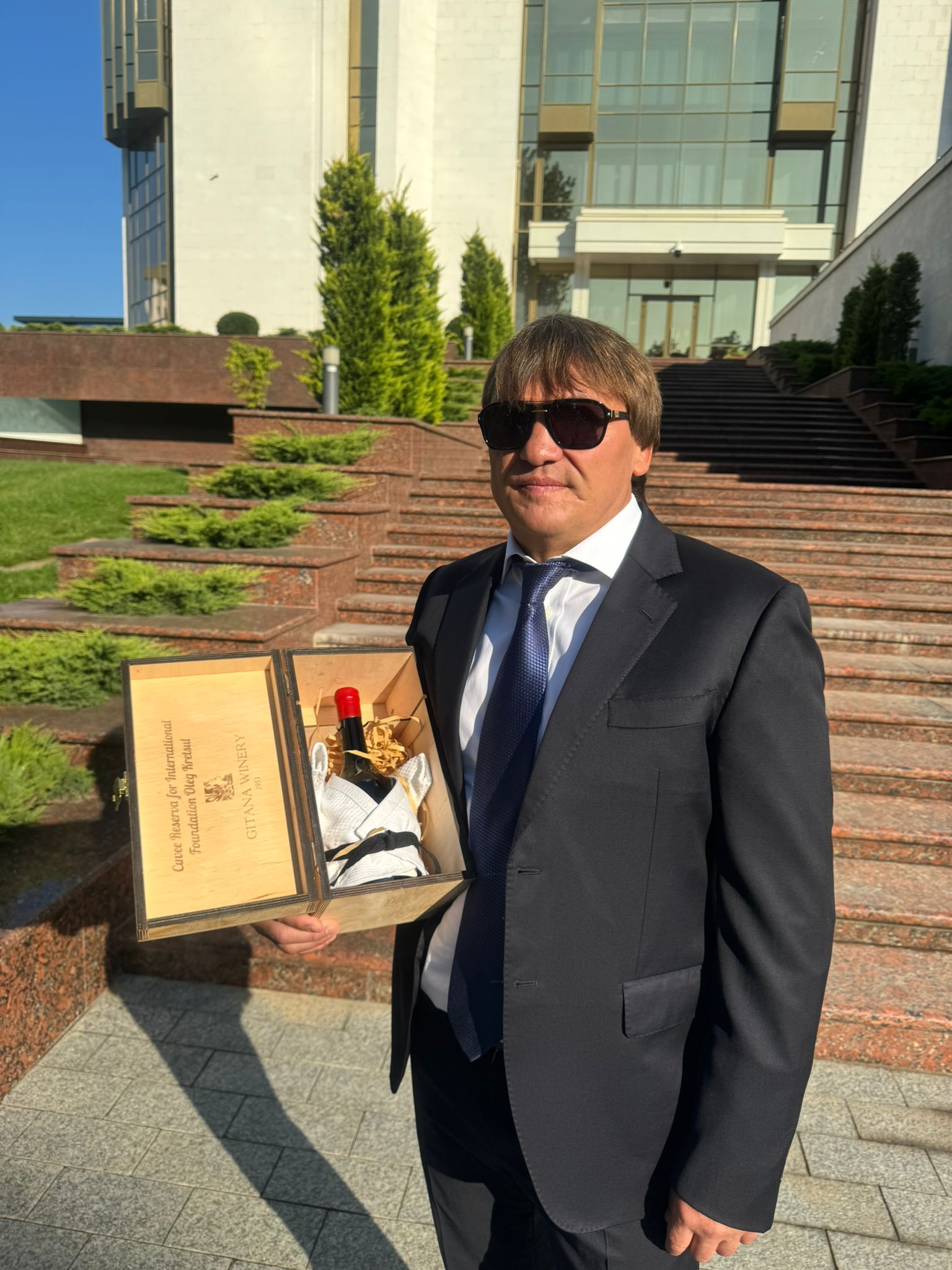
… and helped fulfill Ina Cernei’s dream of getting to Paris Disneyland
At the Paris Paralympic Games, Ina Cernei was the first to step onto the tatami. And she lost.
‘She was devastated. When we got back to our room in the Olympic Village, Ina crawled under the covers, buried her head under the pillow, and simply went silent. She didn’t want to eat or sleep — all you could hear were the occasional quiet sobs…
The next day, Oleg Crețul and Ion Basoc were scheduled to compete. I realized I had to do something to pull her out of that depression, because I couldn’t imagine how I would manage splitting my attention between Ina in such a state and the others, who also needed support on their competition day.’
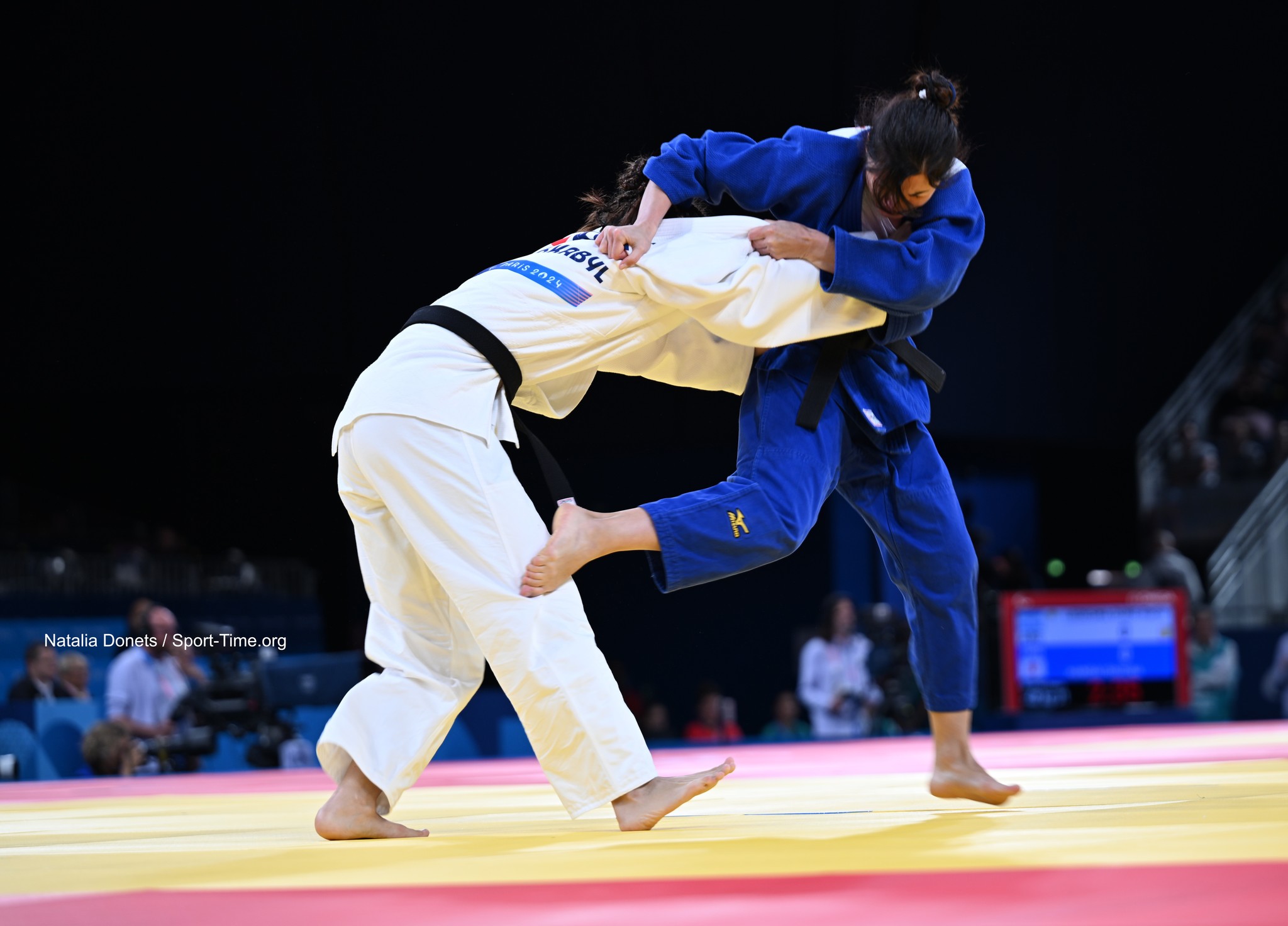
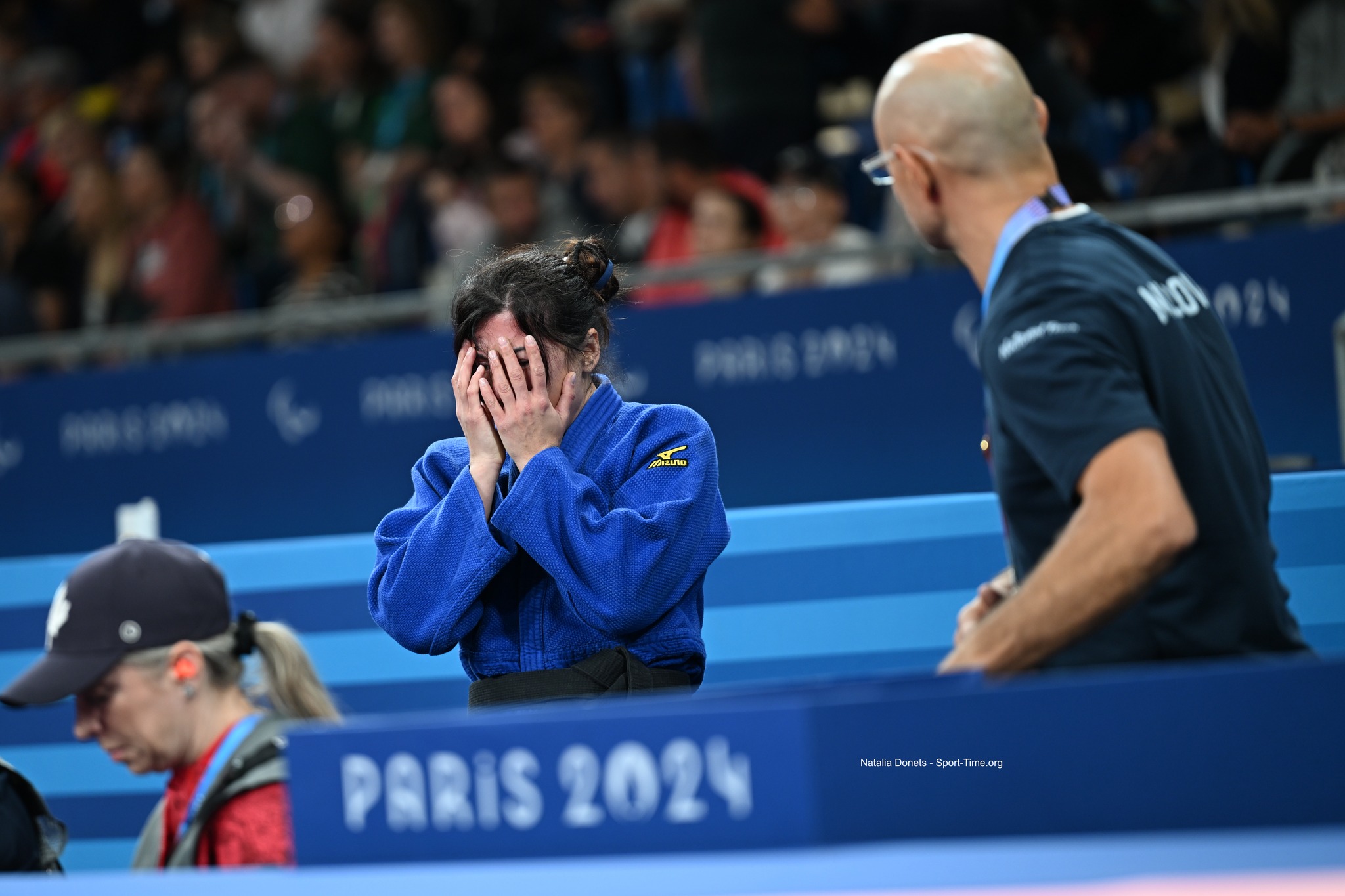
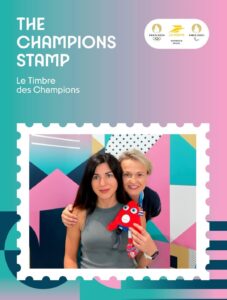 Once again, friends from the world of winemaking came to the rescue. Irina reached out to Anna Croitoru, a Moldovan native now living in Champagne. Anna volunteered to help fulfill Ina Cernei childhood dream of visiting Disneyland. She dropped her work and cancelled commitments, came to Paris, and took the athlete to the famous amusement park.
Once again, friends from the world of winemaking came to the rescue. Irina reached out to Anna Croitoru, a Moldovan native now living in Champagne. Anna volunteered to help fulfill Ina Cernei childhood dream of visiting Disneyland. She dropped her work and cancelled commitments, came to Paris, and took the athlete to the famous amusement park.
‘When I told Ina that she was going to Disneyland, at first she didn’t believe me. Then she crawled out from under the covers, wiped away her tears, grabbed me in her arms, and started spinning around the room, asking over and over if it was really true and how I had managed to organize it…
I told her — Paris isn’t going to be the last Paralympic Games of her life, and childhood dreams must come true. Yes, she didn’t win her match, but there’s always something good that comes out of it.
A year earlier, she had shared with me that as a little girl, when she could still see, she dreamed of going to Disneyland. And now the moment had finally come to make that dream a reality.‘
Irina recalls the day Oleg Crețul and Ion Basoc stepped onto the tatami as one of the most intense days of her life.
‘I thought I was going to go gray!’ she laughs, though a trace of the tension is still audible in her voice.
The matches were not easy for Oleg, 49 at that point, especially the repechage — the consolation bout where judokas compete for the right to fight for a bronze medal. After this match, he was literally carried off the tatami.
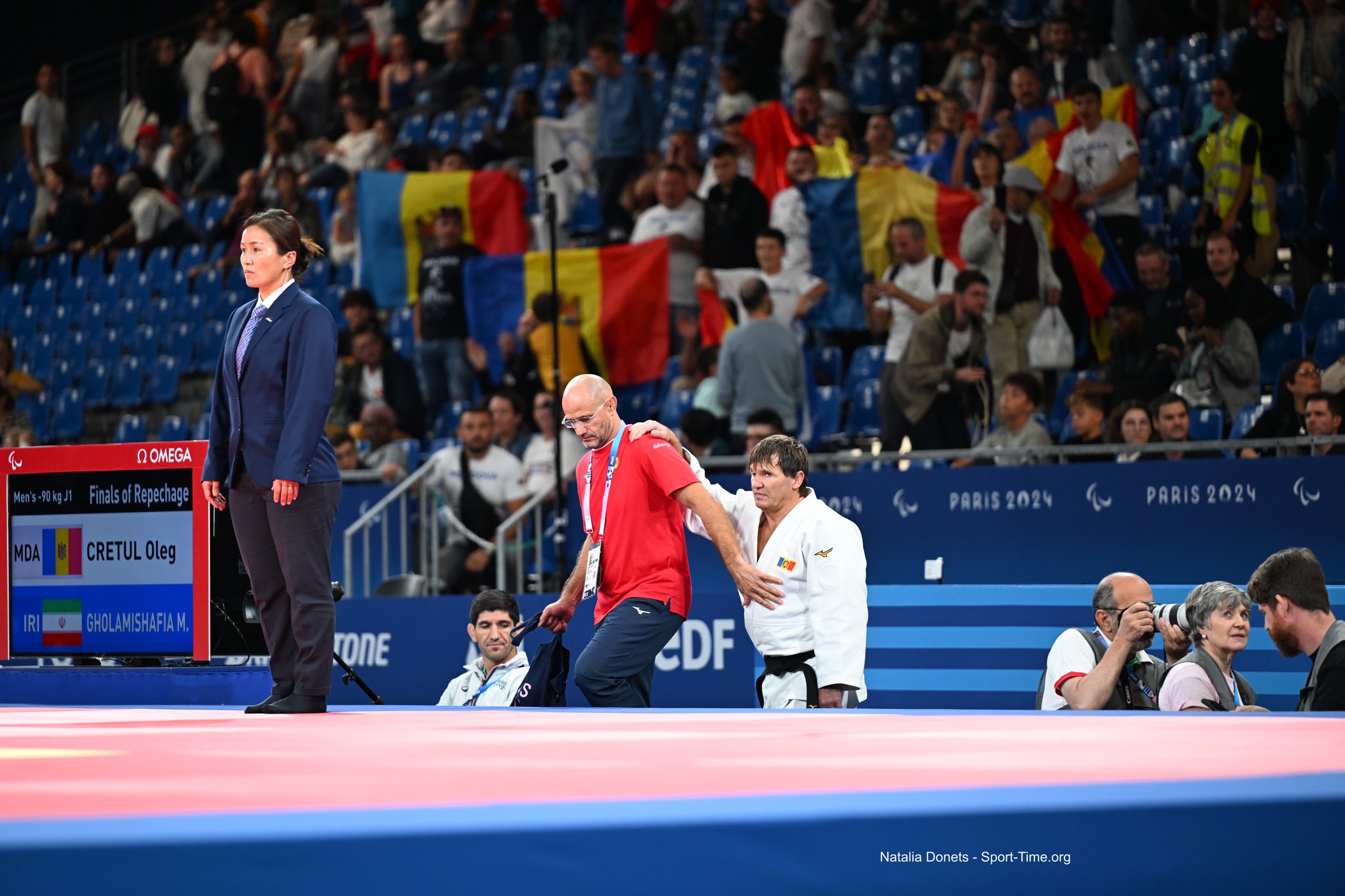
‘We thought — that’s it, this is the end, not just of his match, but of his life!” Irina recalls. “Our doctor ran an electrocardiogram and it turned out that Oleg was literally on the verge of a heart attack. Vitalie tried to convince him that continuing the fight would be life-threatening and that he should withdraw from the competition. But Oleg was resolute. He asked to be taken outside to get some fresh air.’

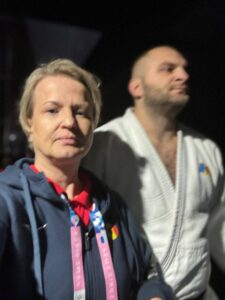 At that moment, Oleg’s son called Irina from the stands, having noticed that something was wrong. Of course, he couldn’t get backstage, and Irina, unsure how things would end, rushed around trying to find a way to get him a pass so he could reach his father.
At that moment, Oleg’s son called Irina from the stands, having noticed that something was wrong. Of course, he couldn’t get backstage, and Irina, unsure how things would end, rushed around trying to find a way to get him a pass so he could reach his father.
‘And then — while Oleg and Vitalie were outside, they announced Ion’s turn! And Vitalie, who was supposed to accompany him onto the tatami, still hadn’t appeared…‘ Irina recalls. Without hesitation, she grabbed Ion by the arm and led him down the long corridor connecting the warm-up area to the arena. ‘I was walking and couldn’t imagine what would happen next,’ she admits. ‘According to the rules, the athlete should be escorted by the coach, not me…‘
Fortunately, Vitalie arrived literally at the last second.
Ion Basoc went on to defeat all his opponents and etched his name into the history of Moldovan sport, winning the country’s first-ever silver medal at the Paralympic Games.
The bronze match became the true climax for everyone following the competition. Oleg Crețul, defying the doctors’ warnings and his coach’s pleas, summoned all his strength and stepped onto the tatami. He won — completing his full set of Paralympic medals: gold in Beijing 2008, silver in Athens 2004 (competing for Russia at the time), and now bronze, while representing Moldova.
World Championship in Kazakhstan
After Paris, the team traveled to Astana — and it was there that Irina had to put not only her organizational skills but also her medical skills to the test. Unfortunately, athletes don’t always travel with a team doctor. So when an unexpected situation arises, they rely on the help of doctors from other countries, who gladly assist — and in return, are offered Moldovan wine.
‘During one match, Ina broke her ankle,” Irina recalls. “Vitalie was busy that day: Ion Basoc and Nikolai Bondarev were competing. I picked up Ina, we called a taxi, and went back to the hotel. There, I had to administer first aid as best I could under the circumstances. I ran to the bar, filled a silver champagne bucket with ice, and used it to make cold compresses for Ina’s ankle. Later, when the competition ended and the teams returned, the Georgian team doctor helped us. Everyone was very worried, but the most important thing is that everything turned out fine.’
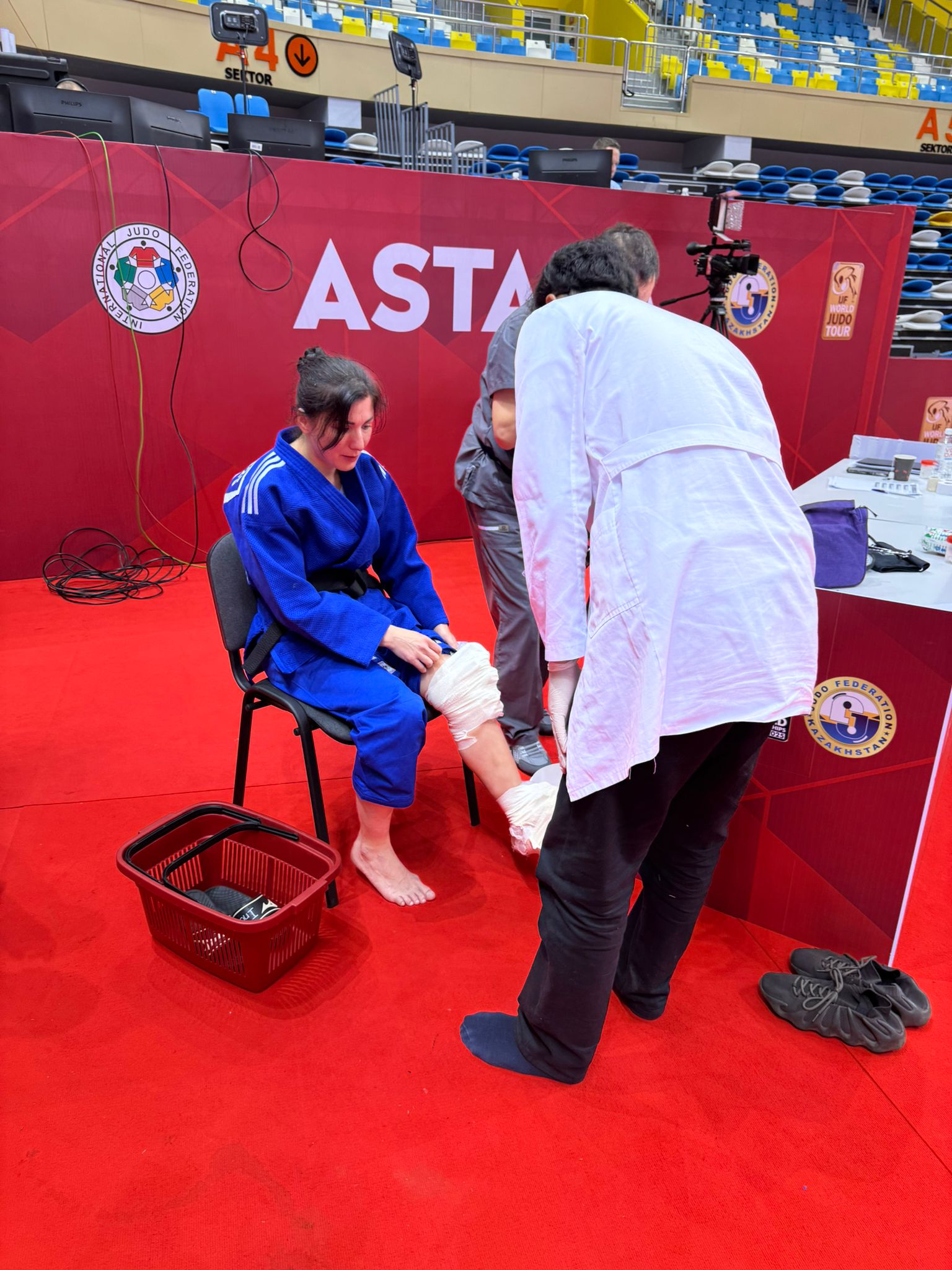
We Don’t Appreciate What We Have
Today, Irina Staheeva is no longer just a sommelier and manager — she is the vice president of the Moldovan Paralympic Committee. But for her, titles have never been the goal. What matters most is seeing athletes flourish, overcome themselves, and achieve the impossible.
‘Working with Paralympic athletes gave me a new perspective on my own life. Some people can get upset over a few minor inconveniences or a ruined manicure, while right next to them are people who don’t see this world but feel it with their hearts. Our athletes are so bright, open, and kind. They genuinely care for each other and support one another not only in moments of victory but also after defeat.
When you watch them, you realize how insignificant your own worries are. Happiness isn’t a house with a pool or an expensive car. Happiness is freedom, inner light, and the ability to find joy in simple things.’
Irina continues to find ways to make the team’s training camps and competitions special: small excursions, museum visits, introductions to the culture and history of the countries where tournaments are held. Yes, the athletes don’t drink wine, but from the very first days with the team, she shared the history of winemaking, taught them to recognize subtle notes in a drink, and find different aromas. This experience became a symbol of the fact that happiness lies in the little things, in attentiveness to the world and to one another.
And while Moldovan para judokas win medals and set new records, Irina stands beside them — inspiring, supporting, and reminding everyone that victory begins with willpower, and the world is discovered with the heart.
